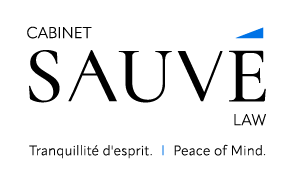Building a Business with Partners? Read This First.
Why Your Business Partnership Needs a Shareholder Agreement: A Founder's Guide
Starting a new business with partners is an exhilarating experience. The air is filled with innovative ideas, shared ambition, and a collective vision for the future. In this "honeymoon phase" of entrepreneurship, you and your co-founders are focused on product development, market strategy, and growth. The last thing on your mind is the possibility of a serious disagreement, a sudden departure, or an unexpected life event.
However, the most successful partnerships are the ones that prepare for challenges while everyone is still on the best of terms. Just as you wouldn't build a house without a blueprint, you shouldn't build a company without a clear set of rules governing the relationship between its owners.
This is where a Shareholder Agreement comes in. It is arguably one of the most critical legal documents for any privately-owned corporation with more than one shareholder. Think of it as a pre-nuptial agreement for your business—a confidential roadmap that provides clarity, protects your investment, and ensures the long-term stability of your venture. This guide will walk you through what a Shareholder Agreement is and why it's an non-negotiable tool for your peace of mind.
What Exactly is a Shareholder Agreement?
While your corporation's Articles of Incorporation and Bylaws are foundational, they are largely procedural and public-facing. A Shareholder Agreement, on the other hand, is a private, legally binding contract signed by all the shareholders. Its primary purpose is to govern the relationship between the owners and to outline their rights, responsibilities, and obligations.
Most importantly, it anticipates potential future conflicts and events, establishing agreed-upon solutions before they happen. It is a proactive document created in good faith, designed to prevent messy, expensive, and emotionally draining disputes down the road. Without one, you are left to rely on the default, and often inadequate, provisions of Ontario's Business Corporations Act.
The "What Ifs": Addressing the Toughest Questions
The true power of a Shareholder Agreement lies in its ability to provide answers to the difficult "what if" scenarios that can derail even the most promising businesses.
What if a Founder Wants to Leave? (The Exit Strategy)
Sooner or later, a shareholder may want to exit the business, whether for retirement, a new opportunity, or personal reasons. Without a plan, this can create chaos. Can they sell their shares to anyone, including a competitor? At what price? A Shareholder Agreement establishes clear exit protocols, often including:
- Right of First Refusal (ROFR): This clause requires a departing shareholder to offer their shares to the remaining shareholders first. This allows the original founders to maintain control and prevent shares from ending up in unfriendly hands.
- Piggy-Back and Drag-Along Rights: These clauses address situations where a third party wants to buy the company. Drag-along rights allow majority shareholders to "drag" minority shareholders into a sale, while piggy-back rights allow minority shareholders to "piggy-back" on the same deal, ensuring they aren't left behind.
What if There's a Major Disagreement? (The Deadlock Provision)
If your company is owned 50/50 by two partners, what happens when you arrive at a critical decision and cannot agree? This kind of deadlock can paralyze a business. A Shareholder Agreement can include a dispute resolution mechanism, such as:
- Shotgun Clause (Buy-Sell Agreement): This is a powerful, last-resort provision. One partner can offer to buy the other's shares at a specific price. The partner receiving the offer must either sell their shares at that price or buy the offering partner's shares at the same price. This mechanism forces a fair valuation and guarantees a resolution, as one partner will inevitably buy out the other.
- Mediation/Arbitration: The agreement can mandate that partners must first attempt to resolve disputes through a neutral third-party mediator or arbitrator before resorting to costly litigation.
What if a Founder Passes Away, Becomes Disabled, or Gets Divorced?
Life is unpredictable. A well-drafted agreement protects the business from the personal circumstances of its owners, often referred to as the "Three D's":
- Death: Upon the death of a shareholder, the agreement can stipulate that the company or the remaining shareholders have the right or obligation to purchase the deceased's shares from their estate. This is often funded by corporate-owned life insurance policies, ensuring the business has the cash to complete the transaction. This provides liquidity for the deceased's family and prevents the shares from passing to heirs who may have no interest or expertise in running the company.
- Disability: Similar provisions can apply in the event of a long-term disability, triggering a buyout so the disabled partner can be fairly compensated while the business continues to operate smoothly.
- Divorce: A Shareholder Agreement can prevent a founder's shares from becoming contested matrimonial property that could be transferred to an ex-spouse in a divorce settlement, protecting the company from outside ownership.
Key Components of a Robust Shareholder Agreement
While every agreement should be tailored to the specific business, most robust agreements include clauses covering:
- Management and Control: Outlining the roles and responsibilities of each shareholder, the composition of the board of directors, and specifying which major decisions require unanimous shareholder approval.
- Valuation: Pre-determining how shares will be valued in the event of a buyout (e.g., using a fixed formula, an agreed-upon multiple of earnings, or a third-party business valuator). This single clause can prevent the biggest source of conflict during a shareholder exit.
- Financing and Capital Contributions: Clarifying expectations around initial and future financial contributions from shareholders.
- Confidentiality and Non-Competition: Protecting the company’s sensitive information and ensuring that a departing shareholder cannot immediately open a competing business next door.
Isn't This Just for Big Corporations?
This is one of the most common and dangerous misconceptions. A Shareholder Agreement is arguably more important for a small, founder-led business where the owners have invested not just their money, but their time, relationships, and personal financial security.
For startups and small businesses, the lines between business and personal life are often blurred. A dispute between partners is not just a business problem; it's a personal crisis that can destroy friendships and families. The upfront investment in having a lawyer draft a proper Shareholder Agreement is minuscule compared to the devastating financial and emotional cost of litigating a partnership dispute later.
Conclusion: Your Blueprint for Business Peace of Mind
Starting a business with partners is a journey built on trust, but reinforced by clarity. A comprehensive Shareholder Agreement is the blueprint that provides that clarity. It is a living document that aligns expectations, mitigates risk, and provides a clear path forward through the most complex challenges your business may face.
By having these difficult conversations early and formalizing the answers, you are not planning for failure; you are building a resilient foundation for enduring success. This proactive step is the ultimate investment in your business, your partnership, and your own peace of mind.
Ready to build your business on a solid legal foundation?
Starting a venture with partners is an exciting time. Ensure its long-term health and protect your investment by putting a comprehensive Shareholder Agreement in place.
Contact the experienced corporate law team at Cabinet Sauvé Law today for a consultation. We provide clear guidance in both English and French to help you secure the future of your business.




